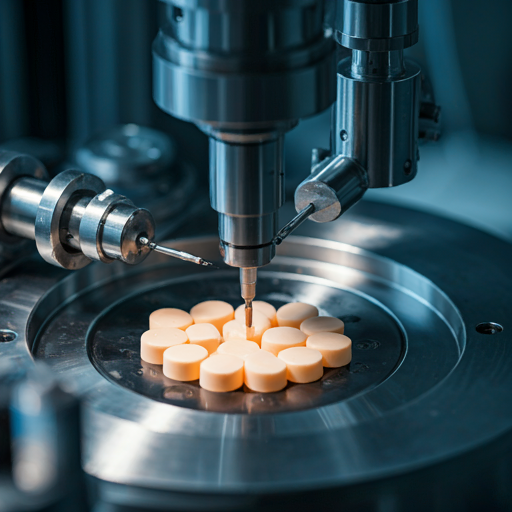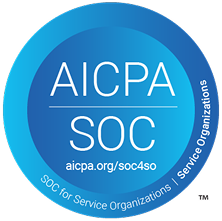Artificial intelligence (AI) is revolutionizing the pharmaceutical industry, streamlining processes, reducing costs, and accelerating drug discovery. From predictive analytics to personalized medicine, AI’s transformative applications are reshaping the future of healthcare. This guide explores the top applications of AI in the pharmaceutical sector and its impact on innovation.
How AI is Transforming the Pharmaceutical Industry
The pharmaceutical industry faces challenges like high R&D costs, lengthy drug development cycles, and increasing demand for precision medicine. AI addresses these challenges by enabling:
- Faster drug discovery
- Efficient clinical trials
- Enhanced patient outcomes
Top Applications of AI in the Pharmaceutical Industry
1. Drug Discovery and Development
AI accelerates drug discovery by identifying potential drug candidates faster than traditional methods.
- Example: Companies like DeepMind and Insilico Medicine use AI to predict protein structures and design new molecules.
- Benefits:
- Reduces the time for target identification and validation.
- Minimizes costs associated with trial-and-error research.
2. Clinical Trials Optimization
AI improves clinical trial efficiency by identifying suitable participants, predicting outcomes, and optimizing trial designs.
- Example: AI-powered tools like IBM Watson Health analyze patient data to find trial candidates.
- Benefits:
- Speeds up recruitment.
- Reduces trial dropouts.
- Enhances trial success rates through better predictions.
3. Personalized Medicine
AI enables precision medicine by tailoring treatments to individual patients based on genetic, environmental, and lifestyle factors.
- Example: GNS Healthcare uses AI to match cancer patients with the most effective treatments.
- Benefits:
- Improves patient outcomes.
- Reduces adverse drug reactions.
4. Drug Repurposing
AI identifies new uses for existing drugs, saving time and resources compared to developing entirely new drugs.
- Example: BenevolentAI uses machine learning to explore drug repurposing opportunities.
- Benefits:
- Accelerates the availability of treatments.
- Expands the therapeutic potential of existing drugs.
5. Predictive Analytics for Disease Progression
AI analyzes patient data to predict disease progression, aiding early diagnosis and intervention.
- Example: Machine learning models in oncology predict tumor growth and treatment response.
- Benefits:
- Supports proactive treatment strategies.
- Reduces healthcare costs through early intervention.
6. Manufacturing Process Optimization
AI enhances pharmaceutical manufacturing by monitoring processes, predicting equipment failures, and ensuring quality control.
- Example: AI-powered systems predict production bottlenecks and maintain product quality.
- Benefits:
- Reduces waste and downtime.
- Ensures consistent product quality.
7. Market Access and Commercial Strategy
AI helps pharmaceutical companies analyze market data to develop effective commercialization strategies.
- Example: Predictive models analyze sales data and forecast demand for specific drugs.
- Benefits:
- Enhances market penetration.
- Optimizes supply chain management.
AI in Pharma: Real-World Success Stories
- Pfizer and IBM Watson: Pfizer used IBM Watson for AI-driven immuno-oncology drug discovery, speeding up candidate identification.
- Exscientia: This company developed the world’s first AI-designed drug, entering clinical trials in just 12 months.
- Novartis: Leveraged AI to optimize manufacturing processes and monitor production quality in real time.
Challenges and Limitations of AI in Pharma
While AI offers numerous benefits, its adoption in pharmaceuticals faces challenges:
- Data Privacy Concerns: Ensuring patient data security is critical.
- Regulatory Hurdles: AI tools must comply with strict healthcare regulations.
- Bias in Algorithms: Ensuring datasets are unbiased to avoid flawed predictions.
- High Implementation Costs: AI integration can be expensive for smaller firms.
The Future of AI in the Pharmaceutical Industry
The pharmaceutical industry is poised for even greater AI-driven innovations, including:
- AI in Drug Delivery: Optimizing dosing schedules for maximum efficacy.
- Integration with IoT: Combining AI with wearable devices for real-time patient monitoring.
- AI and Quantum Computing: Revolutionizing molecular simulations for faster drug discovery.
Conclusion
AI is transforming the pharmaceutical industry by improving efficiency, reducing costs, and driving innovation. With applications ranging from drug discovery to personalized medicine, AI holds immense potential to reshape healthcare delivery. Embracing AI is no longer optional for pharmaceutical companies—it’s essential for staying competitive and delivering better outcomes for patients.



No Responses